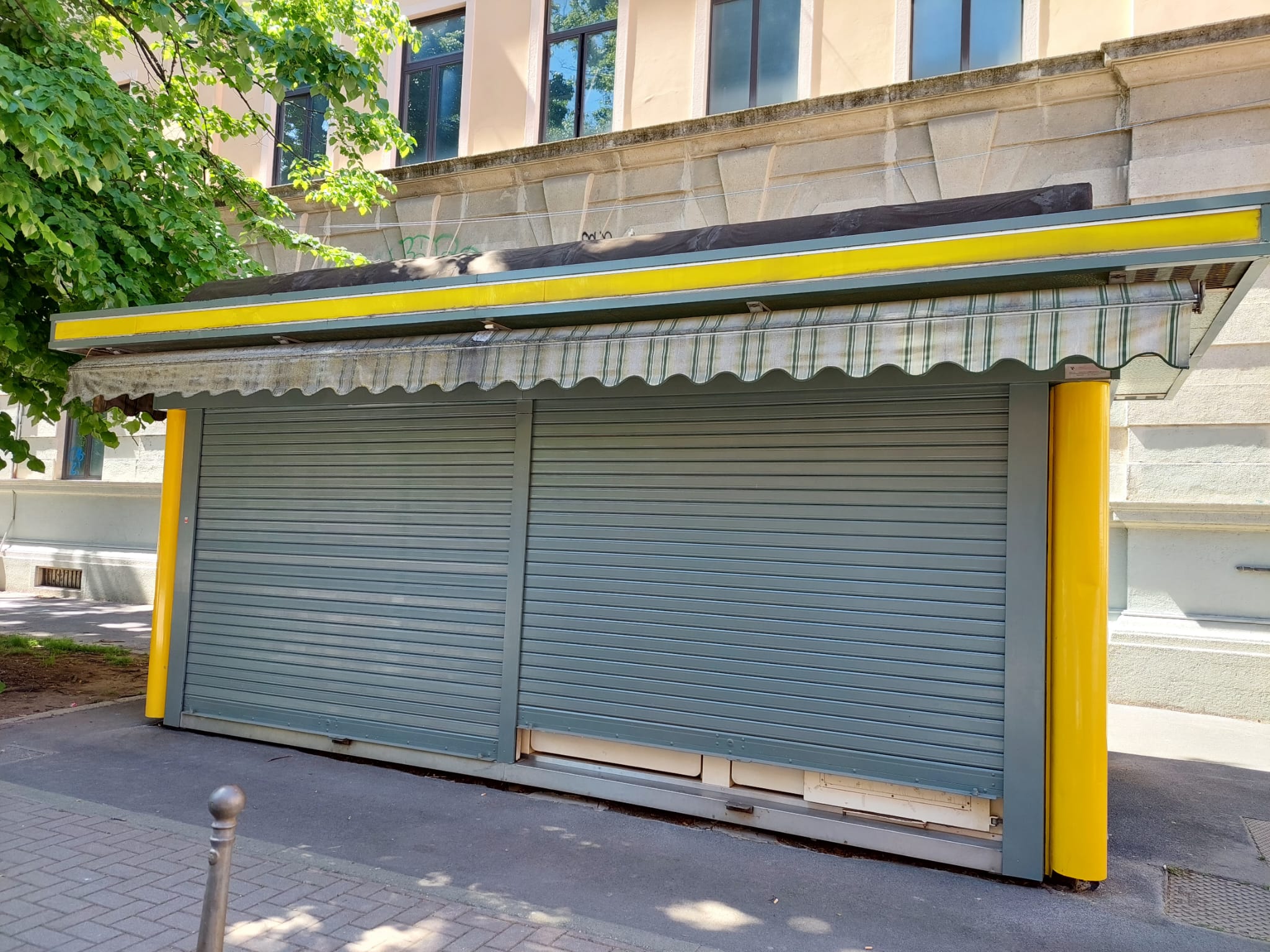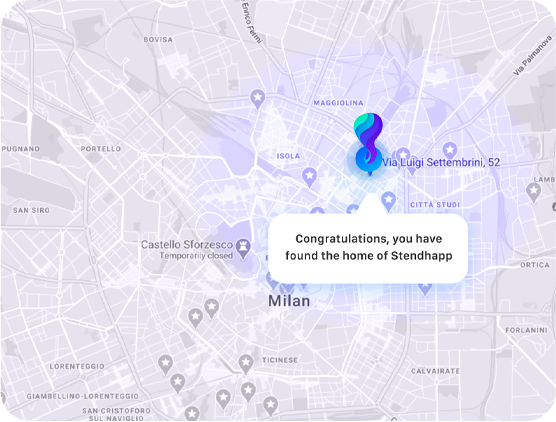There is a neighborhood rich in history on the outskirts of Milan and a newsstand that, instead of closing, opens: these are small signs, drops in the ocean. But perhaps not, it is the transformations from below, the civic outposts, that we like because they teach us that communities really do have the power to change the course of history. Even when it all seems already written.
Martina Pomponio – among the founders – defines it this way “AEdicola Lambrate is a cultural project that challenges the current inexorable disappearance of this important device, through the search for a new business model that brings people closer to reading, confrontation, expressing their thoughts and sharing ideas. Without fear.”
Alessandro Ghidini, a young “aediculant,” tells us how it went.
“It all started when Paolo Iabichino, one of the founders, realized that the newsstand on Via Conte Rosso where he had bought the newspaper for years would close never to reopen. It was neither the first nor the last to disappear, but Paolo did not rest and wrote about it on social media, imagining turning a now-closed newsstand into a cultural gathering place for the neighborhood.
There is nothing more contagious than a good idea; other people from the neighborhood showed up, Martina and Alioscia and then Michele, all ready to do something to make it happen. That’s when I came along, “fished out” from among many aspiring aediculants who answered the call: I applied right away, at 28 years old it’s the perfect project to give direction to my working life, it’s exactly what I was looking for.
I’ve always been a bit precarious, I’ve done various internships, I had a contract in a bookstore, and I immediately thought ‘how nice, I’m going to apply.’ No X Factor style selections, the founders only needed a chat to know I was the right person.
The project crosses a little bit of all the things I studied, did and want to do. I have a literary background and a master’s degree in journalism, here, however, it is also necessary to put yourself out there and, above all, to believe that this can work: I believe in the spirit of the project, I felt I was in the right place for the first time in a long time, I felt valued as a person.
It is a project from the bottom up, an idea of neighborly, horizontal culture. A “cultural civic outpost” that talks about the neighborhood, that comes ‘from and for’ the neighborhood, that also goes a little bit to recover something that has been lost over the years. Newsstands are closing, just look at the data. But they are landmarks, if only to exchange chats, ideas, acquaintances, handshakes, relationships that we are getting unused to. It is getting lost everywhere, not only in metropolises, even in small towns. Aedicola Lambrate was born with the idea of going back to a slower pace, of deepening, going back to paper, going back to exchanging ideas between people.
Lambrate: a town that became a neighborhood
We want to organize events, collaborations on cultural and social issues, to bring people together and, above all, to give back a place that has existed in Lambrate for a hundred years. There was already a round kiosk at the intersection of Via Conte Rosso back in the 1920s, when Lambrate had just become part of the City of Milan.
This is a peculiar neighborhood, once an autonomous rural municipality, 100 years ago it was permanently annexed to the city of Milan, it was incorporated-but also cannibalized-by the city, with its urban planning logics that demanded housing for the workforce needed for metropolitan development. Not too much attention was paid to beauty, but only to functionality. Lambrate, like other rural municipalities annexed in 1923, has been distorted in its identity spirit. The aedicule wants to recover this aspect; it is a glimpse into something that has remained but is difficult to see.
The project has been received with so much enthusiasm: so many people are supporting us, telling us how nice it is, we can’t wait. People who had been coming to buy the newspaper here since ’46, almost a century ago, have come to greet us.”
A gentleman stops, “I have an impossible mission for you: I need an English newspaper, a Russian newspaper, and a Japanese newspaper. Maybe even a French one. Can you get them for me?” Being a point of reference means being there, even for unlikely requests that almost seem to have come out of a joke.
A project born plural
“There will be not only newspapers and periodicals but also books and a showcase intended for independent, magazine and bookstore publishing. The most important thing when it comes to culture is to make it as broad a concept as possible. Culture is not the prerogative of some and not of others. It is not simply having the vertical, beautiful magazine. The culture we mean here is not picky, it comes from the bottom, it is horizontal, and it tends to be inclusive. People come by and propose collaborations to us, on a photography collective, because they have written a book or because they want to collaborate-that is kind of the spirit of the project, which is born plural, it wants to network. The plurality comes from the neighborhood itself and how we understand the idea of community.
We talk about cultural militancy to connote this project also from a social point of view: this street is a trench that is part of the historic core of Lambrate, dividing the neighborhood between the historic part, with the old church of San Martino and the other part, the part that has suffered from wild urbanization, with new buildings destined for wealthy classes, far from the nature of the neighborhood.
The Resistance in Lambrate: an important legacy
I really feel honored to be actively working on a project that seeks to reconnect in continuity with history. Coming here from the center of the city you can see 114 plane trees: they commemorate the 114 inhabitants of the municipality of Lambrate who fell in World War I. Lambrate was one of the hot spots of the Resistance in Milan, thanks in part to the Innocenti factory workers-a model factory of productive fascism-so much so that 15 workers on March 10, ’44 were deported to Mauthausen and many of them did not return.
Unfortunately, lately it has been abused a bit with references to the Resistance, however, I believe that there is a resistance in place, mine is a resistance not only from a cultural point of view, but also a resistance to the depersonalization of the city, which tries to standardize and flatten everything because it evaluates with productivity criteria. I don’t want it to be flaunted as a heroic action, because it is not: the authenticity of certain values is to speak of resistance in the sense of shunning these logics that seem inevitable, but are not. As with all those small acts of sabotage, machines that were dismantled to slow down production, local committees that during the Resistance built micro levees to what seemed the inevitable course of history.
On April 25, this newsstand will sell only one book: the Constitution
It gives me goosebumps to think that there could be even the slightest thread to what we are doing now: fortunately there have been fundamental achievements and there is no need for that kind of action anymore, there is the Constitution, among the most mature in the world. That is why on April 25 we will open to the public, but we will only sell the Constitution. We need to go back to believing, not so much in the beauty of the Constitution as a text, but in the fact that each of us can make a difference, simply on the spot, without heroic actions like those that were necessitated by an extreme context like war. There is always a way to escape something that is imposed on us because, quite simply, it works that way. To be authentic, is already a form of resistance; Social does not help, while claiming to do the opposite.
Aedicola Lambrate is an opportunity: an opportunity for me to connect with what I would like to be and an opportunity for Lambrate to see itself as a neighborhood again. A place like this, when it’s not there you can feel it.”
Two elderly people walk by, one pushes a walker, “you see, the newsstand reopens.” Yay.





